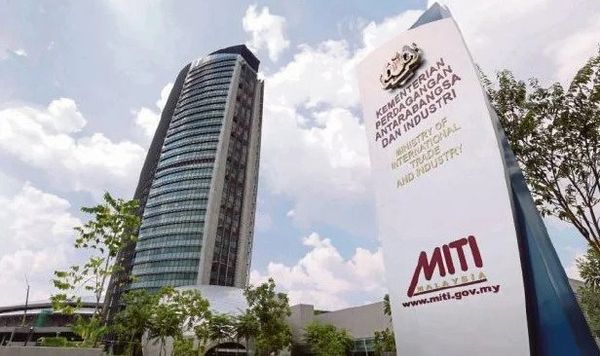KUALA LUMPUR, May 11 — The Academy in Industry programme is anticipated to systematically and continuously enhance the development of skilled talent channels to address the requirements of Malaysia's industrial sector.
Investment, Trade, and Industry Minister Tengku Datuk Seri Zafrul Abdul Aziz said the initiative has the potential to significantly reshape the landscape of the country's labour market.
Academy in Industry is rooted in 'work-based learning,' a method observed in countries like Germany, which enhances the relevance of local workers' skills to industrial demands.
“We aim to avoid providing training and certifications that are not required by industry demands.
“Therefore, collaboration with local companies and the government is crucial to ensure enhanced market productivity in our country," he told the press after the Academy of Industry graduation ceremony today.
Tengku Zafrul added that the Academy in Industry is a government initiative designed to transform skills-based learning in employment and education through industry-led training.
He said these initiatives have the potential to reshape the country's educational landscape by fostering a highly skilled workforce while addressing the industry's current needs and demands.
In 2023, Malaysia recorded a productivity level of RM96,692 per worker, marking an increase compared to RM95,858 per worker in 2022.
"Though this 0.9 per cent increase is modest, it signifies progress. National productivity growth is a crucial economic catalyst, impacting both product production and service delivery," Tengku Zafrul said.
The minister added that the New Industrial Master Plan 2030 identifies competitive growth as a primary challenge in advancing the progress and competitiveness of the manufacturing and industrial sectors, which are key drivers of the country's economy.
Hence, Malaysia's productivity achievement must align with neighboring rapidly developing countries like Singapore, Vietnam, and Thailand.
The government's aggressive efforts to promote the country as a high-value investment destination are expected to bolster investment values in 2024 and beyond.
Earlier this month, Microsoft committed to a US$2.2 billion (RM10.42 billion) investment in Malaysia, marking its largest investment in the country in 32 years.
This promising investment trend underscores the necessity for a skilled workforce to meet investors' requirements.
"Enhancing competitive productivity will usher in a new era for Malaysia, reinforcing its position as a prime destination for high-value investments and a major trade and industrial hub.
"This will stimulate the creation of highly skilled and lucrative job opportunities while elevating the socio-economic status of the populace," he said.
The increase in the workforce to 16.2 million in 2023 reflects a positive trajectory in creating new job opportunities, including the expansion of economic activities contributing to stronger productivity growth.
“Labour market reforms characterised by wage increases must be in sync with advancements in performance and productivity, driven by industrial demand for a skilled workforce.
"Improved employee compensation is pivotal for Malaysia's transition toward the status of a developed country with decent incomes," Tengku Zafrul said.
— Bernama


